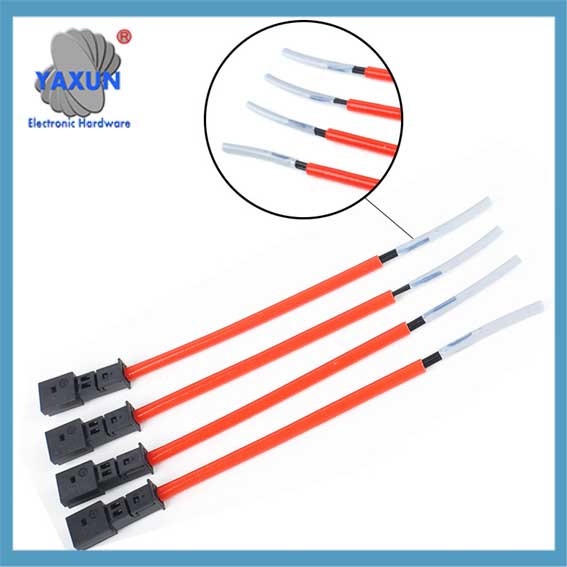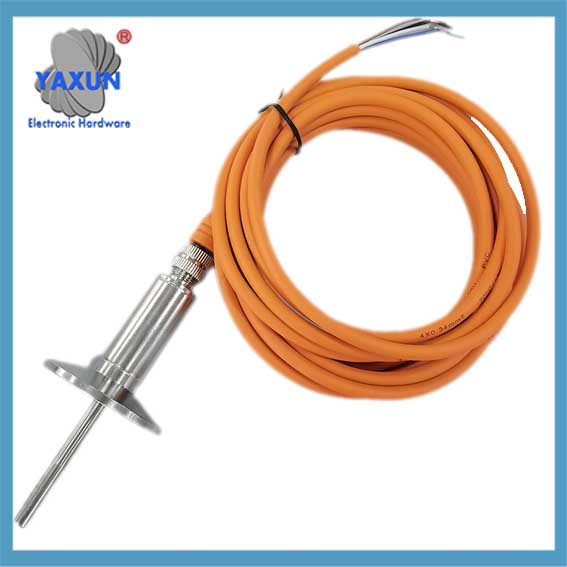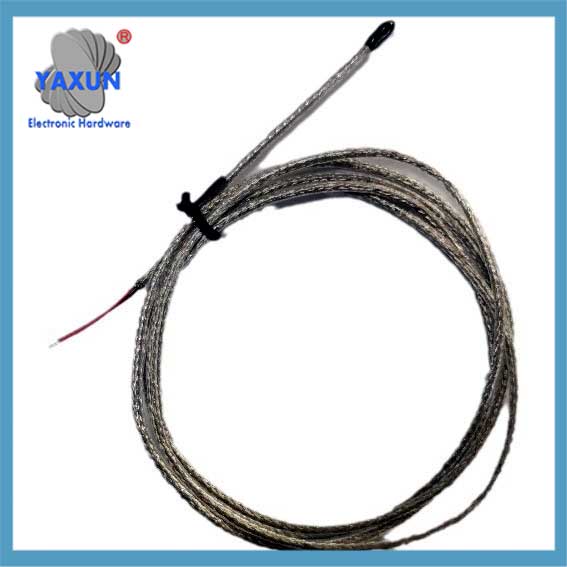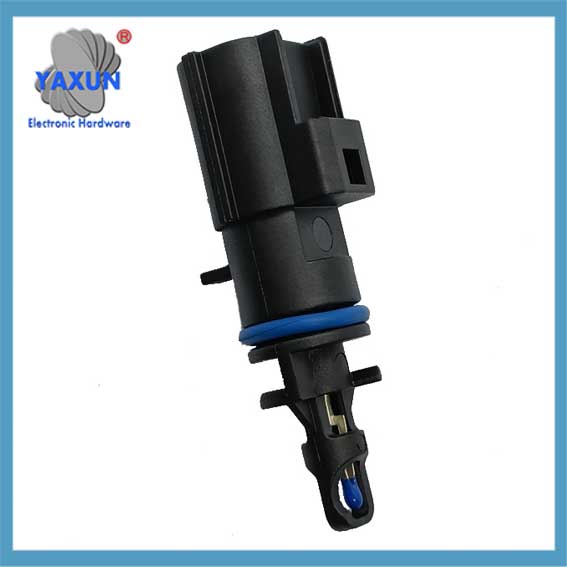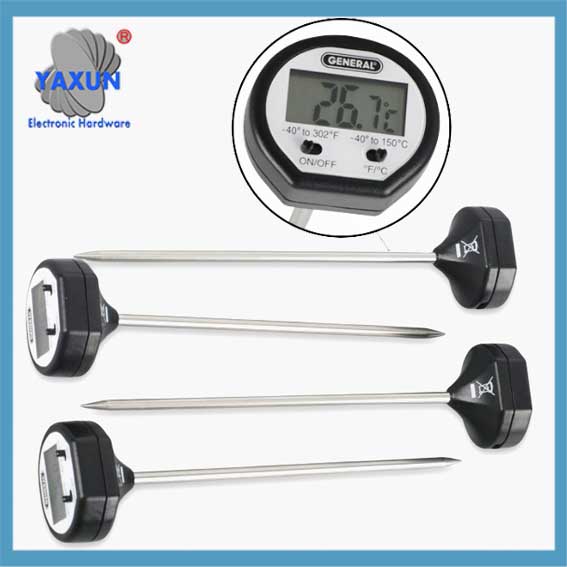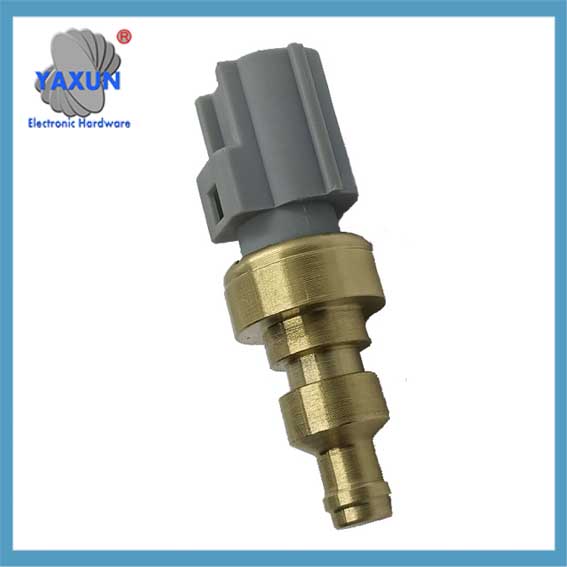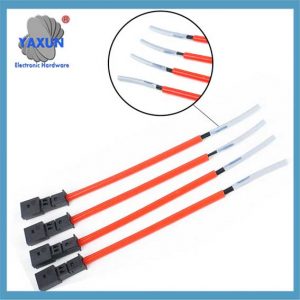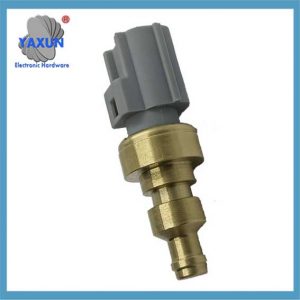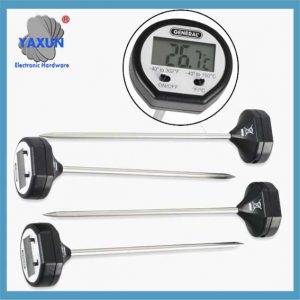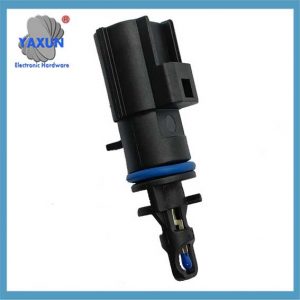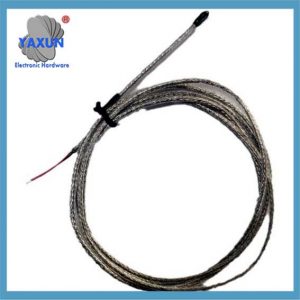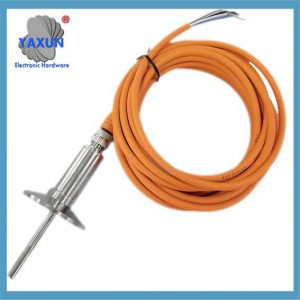catégories de produits
- Disjoncteur thermique 20
- Porte-boîte à fusibles 36
- Capteur de température 67
- Interrupteur thermique 64
- Fusible de voiture 19
- Fusibles boulonnés 7
- fusion thermique 32
- fusibles à montage en surface 12
- thermistance 22
- Porte-fusible à montage sur circuit imprimé 27
- Faisceau de câblage 6
- Porte-fusibles à lame 17
- thermostat 46
- Fusible électrique 14
Mots clés du produit
Messages récents
Application des capteurs de sonde de température?
Résistance thermique, thermocouple, puce de capteur numérique NTC, CTP, PT100, DS18B20 Les capteurs de sonde de température sont largement utilisés dans de nombreux domaines. Voici quelques-uns des principaux domaines d’application: les capteurs de sonde de température sont largement utilisés dans de nombreux domaines, et ils fournissent un support technique important pour la surveillance et le contrôle de la température dans diverses industries. Si vous avez des scénarios d'application ou des besoins spécifiques, Je peux vous fournir des suggestions de sélection et d'utilisation plus détaillées.
Résistance thermique, thermocouple, puce de capteur numérique NTC, CTP, PT100, DS18B20 Les capteurs de sonde de température sont largement utilisés dans de nombreux domaines. Voici quelques-uns des principaux domaines d’application:
Automatisation industrielle: Dans les environnements industriels, Les capteurs de sonde de température sont utilisés pour surveiller les changements de température dans divers équipements et processus de production afin d'assurer le fonctionnement normal de l'équipement et de la qualité du produit. Par exemple, dans le produit chimique, pétrole, industries métallurgiques et autres, Les capteurs de sonde de température peuvent surveiller la température des équipements tels que les réacteurs et les pipelines en temps réel pour éviter les dommages causés par l'équipement ou les problèmes de qualité du produit causés par des températures excessivement élevées ou basse.
industrie médicale: Dans le domaine médical, Les capteurs de sonde de température sont largement utilisés dans l'équipement médical, Instruments de surveillance de la température corporelle et équipement de stockage de médicaments. Ils peuvent mesurer avec précision la température corporelle du patient, Température ambiante et conditions de stockage de médicaments, Fournir des informations de référence importantes pour le personnel médical pour s'assurer que les patients reçoivent un traitement en temps opportun et efficace.
AUTOMOTIVE AUTOMOTIVE: Dans l'industrie automobile, Les capteurs de sonde de température sont utilisés pour surveiller la température des moteurs des véhicules électriques, condensateurs, Convertisseurs DC, systèmes de charge, et moteurs automobiles, boîtes de vitesses, systèmes de climatisation et systèmes d'échappement. Ces capteurs peuvent surveiller la température de divers liquides et gaz en temps réel pour s'assurer que la voiture peut fonctionner normalement dans diverses conditions de travail.
Aragriculture et transformation des aliments: Dans le domaine de l'agriculture et de la transformation des aliments, Des capteurs de sonde de température sont utilisés pour surveiller les changements de température des produits agricoles et des aliments pendant le stockage, transport et traitement. Par exemple, dans les serres, Les capteurs de sonde de température peuvent surveiller la température intérieure en temps réel, Fournir aux agriculteurs des informations de température précises, et les aider à mieux contrôler l'environnement de la serre. Dans le stockage à froid et l'équipement de transformation des aliments, Ces capteurs peuvent s'assurer que les températures de stockage et de transformation des produits alimentaires et agricoles répondent aux normes et garantissent la qualité et la sécurité des aliments.
AUTRAIN: Dans le domaine de la climatisation et de la réfrigération, Les capteurs de sonde de température sont utilisés pour surveiller et régler la température des supports d'air et de réfrigération. Ils peuvent s'assurer que les climatiseurs ménagers, Les réfrigérateurs commerciaux et l'équipement de réfrigération industriel peuvent fonctionner normalement dans diverses conditions de travail, Fournir aux gens un environnement de vie et de travail confortable.
Military and Aerospace: Dans le domaine de l'armée et de l'aérospatiale, Les capteurs de sonde de température sont utilisés pour surveiller la température de divers équipements et systèmes clés. Par exemple, Dans les moteurs et les systèmes de propulsion des véhicules aérospatiaux tels que les avions militaires, missiles et roquettes, Ces capteurs peuvent surveiller la température des composants tels que les chambres de combustion, Turbines et buses en temps réel pour assurer le fonctionnement normal et la sécurité des moteurs et des systèmes de propulsion.
Iot industrie: Avec le développement de la technologie IoT, Les capteurs de sonde de température sont de plus en plus utilisés dans la gestion de la logistique et de la chaîne d'approvisionnement. Ils peuvent surveiller la température des marchandises pendant le transport et le stockage en temps réel, Assurer la qualité et la sécurité du transport et du stockage de la chaîne du froid.
En résumé, les capteurs de sonde de température sont largement utilisés dans de nombreux domaines, et ils fournissent un support technique important pour la surveillance et le contrôle de la température dans diverses industries. Si vous avez des scénarios d'application ou des besoins spécifiques, Je peux vous fournir des suggestions de sélection et d'utilisation plus détaillées.
Sonde de température (CTN, CTP, PT100, DS18B20) Les capteurs sont utilisés dans une large gamme d'applications pour mesurer la température des liquides, solides, et les gaz dans diverses industries, y compris les processus de fabrication, surveillance environnementale, diagnostic médical, Systèmes CVC, moteurs automobiles, et production d'électricité, Essentiellement, n'importe où un contrôle de température précis est nécessaire pour assurer la sécurité, qualité, et efficacité opérationnelle; Les applications courantes comprennent la surveillance des températures dans les chaudières industrielles, équipement de transformation des aliments, réactions chimiques, Et même dans le corps humain pendant les procédures médicales.
Types de capteurs de température
1. Coefficient de température négatif (CTN) thermistance
Une thermistance est une résistance thermiquement sensible qui présente un, petit, un changement incrémentiel de résistance corrélé aux variations de température. Une thermistance NTC fournit une résistance plus élevée à basse température. À mesure que la température augmente, La résistance baisse progressivement, Selon sa table R-T. De petits changements se reflètent avec précision en raison des changements importants de la résistance par ° C. La sortie d'une thermistance NTC est non linéaire en raison de sa nature exponentielle; cependant, il peut être linéarisé en fonction de son application. La plage de fonctionnement efficace est -50 à 250 ° C pour les thermistances encapsulées en verre ou 150 ° C pour les thermistances standard.
La thermistance NTC est une thermistance à revêtement éthoxy de petite taille. Utilisé pour la mesure de la température, CTN(coefficient de température négatif) thermistances dont la résistance diminue avec l'augmentation de la température.
Les thermistances NTC peuvent être utilisées comme éléments de circuit électronique pour la compensation de température de l'instrument et la compensation de température à froid dans une variété d'applications, Fournir une polyvalence pour le contrôle automatisé des machines et l'instrumentation industrielle.
Largement utilisé dans les appareils électroménagers, équipement de climatisation, équipement de chauffage, thermomètre électrique, capteur de niveau liquide et ainsi de suite.
Petite taille, il peut mesurer la température des vides, Cavités et vaisseaux sanguins dans les organismes qui ne peuvent pas être mesurés par d'autres thermomètres;
Ces thermistances sont faciles à utiliser, et la valeur de résistance peut être sélectionnée arbitrairement entre 0.1 et 100 kΩ, avec une bonne stabilité et une forte capacité de surcharge.
2. Détecteur de température à résistance (RDT)
Un détecteur de température de résistance, ou rtd, change la résistance de l'élément RTD avec la température. Un RTD se compose d'un film ou, pour une plus grande précision, un fil enroulé autour d'un noyau en céramique ou en verre. Platinum constitue les RTD les plus précis tandis que le nickel et le cuivre fabriquent des RTD qui sont à moindre coût; cependant, Le nickel et le cuivre ne sont pas aussi stables ou reproductibles que le platine. Les RTD Platinum offrent une sortie linéaire très précise à travers -200 à 600 ° C mais sont beaucoup plus chers que le cuivre ou le nickel.
3. Thermocouples
Un thermocouple se compose de deux fils de métaux différents liés électriquement en deux points. La tension variable créée entre ces deux métaux différents reflète des changements proportionnels de température. Les thermocouples sont non linéaires et nécessitent une conversion avec un tableau lorsqu'ils sont utilisés pour le contrôle de la température et la compensation, généralement accompli à l'aide d'une table de recherche. La précision est faible, depuis 0.5 ° C à 5 ° C mais les thermocouples fonctionnent sur la plage de températures la plus large, depuis -200 ° C à 1750 °C.
4. Capteurs de température à base de semi-conducteurs
Un capteur de température à base de semi-conducteurs est généralement incorporé dans des circuits intégrés (ICS). Ces capteurs utilisent deux diodes identiques avec des caractéristiques de tension sensible à la température par rapport aux caractéristiques de courant qui sont utilisées pour surveiller les changements de température. Ils offrent une réponse linéaire mais ont la plus faible précision des types de capteurs de base. Ces capteurs de température ont également la réactivité la plus lente dans la plage de température la plus étroite (-70 ° C à 150 °C).
Zones d'application clés des capteurs de sonde de température:
Processus industriels: Surveillance des températures dans les processus de fabrication comme les réactions chimiques, production alimentaire, traitement des métaux, et la production d'énergie pour maintenir la qualité et la sécurité.
Systèmes CVC: Réguler les systèmes de chauffage et de refroidissement dans les bâtiments en surveillant les températures de l'air.
Industrie automobile: Surveillance des températures de liquide de refroidissement du moteur pour éviter la surchauffe.
Diagnostic médical: Mesurer la température corporelle par des sondes rectales ou oreilles;
Surveillance environnementale: Évaluation des températures de l'eau dans les réservoirs et les forages pour surveiller les conditions environnementales;
Recherche et développement: Étudier les variations de température dans les expériences et les processus de test;
Surveillance de la construction: Vérification des températures de durcissement du béton pour assurer une bonne intégrité structurelle ;
Production d'énergie: Surveillance des températures dans les centrales électriques et les systèmes d'énergie renouvelable;
Contactez-nous
En attente de votre email, nous vous répondrons dans les 12 heures avec des informations précieuses dont vous aviez besoin.
 English
English العربية
العربية Български
Български 粤语
粤语 中文(简体)
中文(简体) 中文(漢字)
中文(漢字) Nederlands
Nederlands Suomi
Suomi Français
Français Deutsch
Deutsch Ελληνικά
Ελληνικά Magyar
Magyar Italiano
Italiano 日本語
日本語 한국어
한국어 Polski
Polski Português
Português Română
Română Русский
Русский Slovenščina
Slovenščina Español
Español Svenska
Svenska ภาษาไทย
ภาษาไทย Türkçe
Türkçe Tiếng Việt
Tiếng Việt
